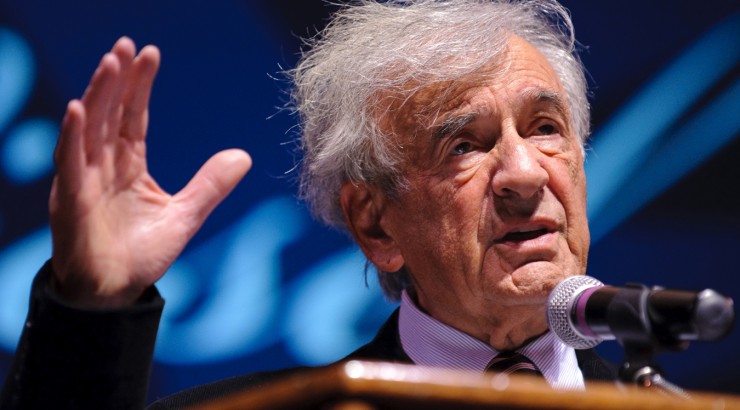
Elie Wiesel Speaks Out
April 18, 2014
At 8:00pm on April 10, 2014 the Wallace Faiths Chapel on Chapman University’s campus saw the final public performance of distinguished scholar, Holocaust survivor, author of over sixty books, and Nobel Laureate Professor Elie Weisel. Prior to this event, I knew Wesiel by reputation as the second best known professor at Boston University after the late Howard Zinn. As a resident of Boston and a person of Jewish heritage, he was someone I was aware of and respected but never had the opportunity to meet.
valium online no prescriptionvalium online without prescriptionbuy valium no prescriptionbuy ambien no prescriptiondiazepam online without prescription online pharmacybuy phentermine no prescriptionbuy tramadol online no prescriptionsoma online pharmacybuy ativan online without prescriptionklonopin online no prescription
Dr. Marilyn J. Harran of Chapman University made it possible for students, staff and faculty to have access at no charge to the story teller and humanitarian. The theatre students did a wonderful job of retelling two classic Hassidic tales, King Solomon and His Magic Ring and The Golem. I admit that I experienced some sense of disappointment that none of the performers were Jewish. Perhaps this speaks to the fact that even now we Jews make up a small percentage of the human population. Had Hitler had his way in his final solution, even more than the six million souls who perished would have died in the camps between the years of 1939 and 1944. The stories adapted by Wesiel and translated into English by his wife, Marion have their roots in Jewish history nearly a century before the birth of Jesus Christ. King Solomon is about wisdom, humility and redemption. While the Golem is about righting wrongs in the face of humiliation and indignation. Personally, I would have preferred to hear Weisel’s personal accounts of history, but I understand why telling these stories remains important.
At the conclusion of the performances, he took the stage to speak. He told the audience of his days and nights in the camps. He talked about how a day was longer than a day and a night was longer than a night. Prisoners had little in the way of creature comforts and constantly questioned what they could have done to deserve their fate.
These stories brought them comfort and connection. Weisel lost both of his parents and his younger sister in the Holocaust. Yet somehow he still managed to become an advocate for peace and understanding. I cannot begin to imagine how to forgive or reconcile the sort of tragedies he was forced to endure. Somehow he rose above this. It is as if to say that to do otherwise would be to let evil win. He has been a spokesperson for peace all over the world. He has spoken up against Apartheid in South Africa, “the disappeared” in Argentina, and recently the suffering of the people in the Darfur region of Sudan.
Weisel considers himself to be a better student than a teacher and a better listener than a student. He concluded his comments with the inclusion of one of his favorite phrases, “And yet.” He said, “Perhaps you were expecting to go home have a nice dinner and go to bed, but here you are listening to me talk and yet… perhaps I won’t talk very long.” The audience laughed along with his easy-going self-deprecating nature. And yet has even more significance than that.
There have been hard times for the Jewish people as there have been for the dispossessed throughout history. What Wesel appears to say is that however bad things are or might seem to be, there is always hope. As long as there is life, there is hope. People have a long history of cruelty toward each other. What made Zinn’s A People’s History of the United States so famous is that he told a familiar history from an unfamiliar perspective of the victim.
There are so few advocates and scholars to speak so eloquently of tragic events that humanity seems so eager to forget. And yet, we still have Elie Weisel who despite his age and demands on his time continues to reach out to new generations of people. He continues to impart his grace and humor and wisdom so that the past is not forgotten, the memories of our ancestors are preserved and the evil of the past not to be repeated. Professor Weisel is a national treasure. Dr. Harran chose the right representative for the Holocaust Memorial wing of the Leatherby Libraries, and we the members of the Chapman community have benefited from his story-telling and teaching.